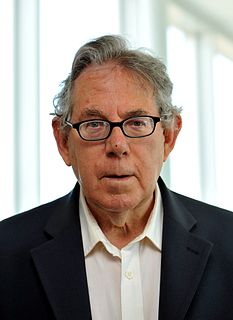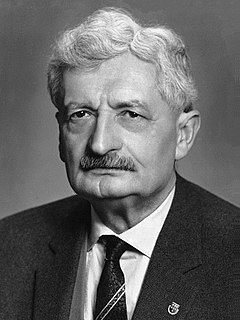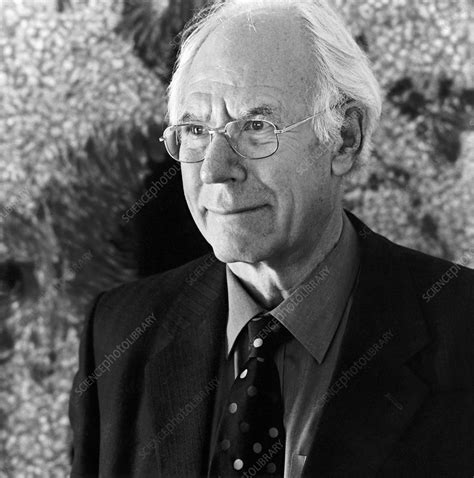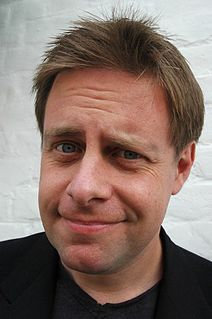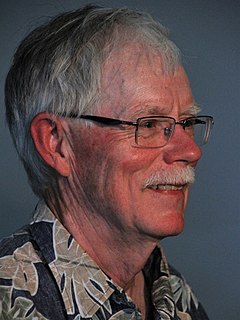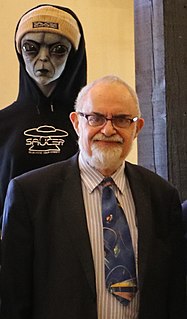Top 853 Solar Panels Quotes & Sayings - Page 14
Explore popular Solar Panels quotes.
Last updated on December 21, 2024.
Essentially, my kids grew up with the emphasis on the environment because I became a political activist in about 1969 and it was not an easy time. Those were the days when the oil and gas companies pretty much controlled the show and anybody speaking about solar energy or carbon energy would get smashed down as being a radical or a tree-hugger or what have you. So I was out there feeling very often alone and my kids would get that.
The sunlight ... that strikes Earth’s land surface in two hours is equivalent to total human energy use in a year. While much of that sunlight becomes heat, solar energy is also responsible for the energy embodied in wind, hydro, wave, and biomass, each with the potential to be harnessed for human use. Only a small portion of that enormous daily, renewable flux of energy will ever be needed by humanity.
If it were possible for us to have so deep an insight into a man's character as shown both in inner and in outer actions, that every, even the least, incentive to these actions and all external occasions which affect them were so known to us that his future conduct could be predicted with as great a certainty as the occurrence of a solar or lunar eclipse, we could nevertheless still assert that the man is free.
I wish it were possible, from this instance, to invent a method of embalming drowned persons in such a manner that they may be recalled to life at any period, however distant; for having a very ardent desire to see and observe the state of America a hundred years hence, I should prefer to any ordinary death the being immersed in a cask of Madeira wine with a few friends till that time, to be then recalled to life by the solar warmth of my dear country!
We live in a very low state of the world, and pay unwilling tribute to government founded on force. There is not, among the most religious and instructed men of the most religious and civil nations, a reliance on the moral sentiment, and a sufficient belief in the unity of things to persuade them that society can be maintained without artificial restraints, as well as the solar system; or that the private citizen might be reasonable, and a good neighbor, without the hint of a jail or a confiscation.
We've got to control our own energy. Now, not only oil and natural gas, which we've been investing in; but also, we've got to make sure we're building the energy source of the future, not just thinking about next year, but ten years from now, 20 years from now. That's why we've invested in solar and wind and biofuels, energy efficient cars.
Variable but forecastable renewables (wind and solar cells) are very reliable when integrated with each other, existing supplies and demand. For example, three German states were more than 30 percent wind-powered in 2007 - and more than 100 percent in some months. Mostly renewable power generally needs less backup than utilities already bought to combat big coal and nuclear plants' intermittence.
Please join me in applauding the ESA - European Space Agency’s historic efforts with the Rosetta Mission and landing a spacecraft on rotating comet. It may seem like a work of fiction, but it is very real, very impressive, and will help us to further uncover the mysteries surrounding the formation of the solar system. They made a beautiful short film using an imaginary landscape to illustrate today’s historic feat.
I think what all actors share is that, somewhere down in your solar plexus, there's this fear that you're not going to be able to come up with the goods, that this is the one movie where you're going to look like a fool, and they should have cast someone else. And you feel ugly, and you've got three chins, and you've gained too much weight, and you're losing your hair, and there are so many better actors who could do this. But if you've got chops, what you realize is that everybody feels that way, so just show up and do the job.
Light is the only connection we have with the Universe beyond our solar system, and the only connection our ancestors had with anything beyond Earth. Follow the light and we can journey from the confines of our planet to other worlds that orbit the Sun without ever dreaming of spacecraft. To look up is to look back in time, because the ancient beams of light are messengers from the Universe's distant past.
We know there are billions of stars and planets literally out there, and the universe is getting bigger. We know from our fancy telescopes that just in the last two years more than 20 planets have been identified outside our solar system that seem to be far enough away from their suns - - and dense enough - - that they might be able to support some form of life. So it makes it increasing less likely that we're alone. But if we were visited someday, I wouldn't be surprised.
Kid says to me, "You play baseball? What position? Left out?" and gets a big laugh from the rest of the class. Kid is only one person out of 6.792 billion humans on this planet. This planet is only one-eighth of the solar system, whose sun is one of two billion stars in the Milky Way galaxy. Put it that way, the comment loses it's importance.
Mark Tobey fills his canvases with elliptical, calligraphic lines, beautiful whirls that seem at first glance to be completely abstract and to come from nowhere at all except his own subjective musing. But I shall never forget how struck I was, on visiting Tobey's studio one day, to see strewn around books on astronomy and photographs of the Milky Way. I knew then that Tobey experiences the movement of the stars and solar constellations as the external pole of his encounter.
In discussing the state of the atmosphere following a nuclear exchange, we point especially to the effects of the many fires that would be ignited by the thousands of nuclear explosions in cities, forests, agricultural fields, and oil and gas fields. As a result of these fires, the loading of the atmosphere with strongly light absorbing particles in the submicron size range (1 micron = 10-6 m) would increase so much that at noon solar radiation at the ground would be reduced by at least a factor of two and possibly a factor of greater than one hundred.
Scientists can routinely predict a solar eclipse, to the minute, a millennium in advance. You can go to the witch doctor to lift the spell that causes your pernicious anaemia, or you can take Vitamin B12. If you want to save your child from polio, you can pray or you can inoculate. If you're interested in the sex of your unborn child, you can consult plumb-bob danglers all you want . . . but they'll be right, on average, only one time in two. If you want real accuracy . . . try amniocentesis and sonograms. Try science.
It seems to me that our problem has a lot less to do with the mechanics of solar power than the politics of human power—specifically whether there can be a shift in who wields it, a shift away from corporations and toward communities, which in turn depends on whether or not the great many people who are getting a rotten deal under our current system can build a determined and diverse enough social force to change the balance of power.
I basically don't think that the way we do things is that dependent on one resource, such as oil. There can be different kinds of engines for cars. I think that solar heating, wind heating can substitute for a lot of uses for oil. I'd like to see those things happen because they are more sustainable in any case. But I do not think that running out of oil is not going to bother us that much. I think we have got to be rescued by something or we really are going down a slippery slope.
Men are weak now, and yet they transform the Earth's surface. In millions of years their might will increase to the extent that they will change the surface of the Earth, its oceans, the atmosphere, and themselves. They will control the climate and the Solar System just as they control the Earth. They will travel beyond the limits of our planetary system; they will reach other Suns, and use their fresh energy instead of the energy of their dying luminary.
No one, it has been said, will ever look at the Moon in the same way again. More significantly can one say that no one will ever look at the earth in the same way. Man had to free himself from earth to perceive both its diminutive place in a solar system and its inestimable value as a life -fostering planet. As earthmen, we may have taken another step into adulthood. We can see our planet earth with detachment, with tenderness, with some shame and pity, but at last also with love.
It is my thesis that flying saucers are real and that they are space ships from another solar system. I think that they possibly are manned by intelligent observers who are members of a race that may have been investigating our Earth for centuries. I think that they possibly have been sent out to conduct systematic, long-range investigations, first of men, animals, vegetation, and more recently of atomic centers, armaments an centers of armament production.
In the first place a philosophical proposition must be general. It must not deal specially with things on the surface of the earth, or within the solar system, or with any other portion of space and time. . . . This brings us to a second characteristic of philosophical propositions, namely that they must be a priori. A philosophical proposition must be such as can neither be proved nor disproved by empirical evidence. . . . Philosophy, if what has been said is correct, becomes indistinguishable from logic as that word has now come to be used.
This is a living planet. Look around. Mars, Venus, Jupiter. Look beyond our solar system. Where else is there a place that works, that is just right for the likes of us? It has not happened just instantly. It is vulnerable to our actions. But it's the result of four and a half billion years of evolution, of change over time. And it changes every day, all the time. It would be in our interest to try to maintain a certain level of stability that has enabled us to prosper, to not wreck the very systems that give us life.
Our civilization has decided that determining the guilt or innocence of men is a thing too important to be trusted to trained men. When it wants a library catalogued, or the solar system discovered, or any trifle of that kind, it uses up its specialists. But when it wishes anything done which is really serious, it collects twelve of the ordinary men standing round. The same thing was done, if I remember right, by the Founder of Christianity.
The most straightforward path would be if we could bring the cost of solar electric and wind down by another factor of say, three, and then have some miraculous storage solution, so that not only over the 24-hour day but over long periods of time where the wind doesn't blow, you have reliable energy. That's a path. But energy storage is hard. That's not a guaranteed path.
the Egyptians were the first to discover the solar year, and to portion out its course into twelve parts both the space of time and the seasons which they delimit. It was observation of the course of the stars which led them to adopt this divisionIt is also the Egyptians who first bought into use the names of the twelve gods, which the Greeks adopted from them
The seemingly insuperable difficulties of deep-space travel suggest an intention to keep us fixed at home in our own solar system, and the physical nature of our part of the Universe, as well as the basic rules of physics and chemistry, have a warning look about them, like barriers designed to isolate intelligent life. This means that for us, unlike the situation for humble microorganisms, deep-space travel is probably a stark impossibility.
You know we're in a planet surrounded by certain kinds of frequencies and noise. The earth's magnetic sphere makes weird sounds. The sun you know the heart of our solar system makes noise. Even interstellar phenomena like black holes. You know people have studied them and a black hole can emit sound in like the range of 20,000 octaves below B flat.
To reduce modern climate change to one variable, CO2, or a small proportion of one variable - human-induced CO2 - is not science. To try to predict the future based on just one variable (CO2) in extraordinarily complex natural systems is folly. Yet when astronomers have the temerity to show that climate is driven by solar activities rather than CO2 emissions, they are dismissed as dinosaurs undertaking the methods of old-fashioned science.
Variable behaviour of the sun is an obvious explanation, and there is increasing evidence that Earth's climate responds to changing patterns of solarmagnetic activity. ... If you look back into the sun's past, you find that we live in a period of abnormally high solar activity. ... It's a boom-bust system, and I would expect a crash soon. ... Having a crash would certainly allow us to pin down the sun's true level of influence on the Earth's climate. Then we will be able to act on fact, rather than from fear.
To get to Earth from the edge of the solar system, depending on the time of year and the position of the planets, you need to pass through at least Poland, Prussia, and Turkey, and you'd probably get stamps in your passport from a few of the other great powers. Then as you get closer to the world, you arrive at a point, in the continually shifting carriage space over the countries, where this complexity has to give way or fail. And so you arrive in the blissful lubrication of neutral orbital territory.
Global warming results not from the emission of greenhouse gases into the atmosphere, but from an unusually high level of solar radiation and a lengthy - almost throughout the last century - growth in its intensity. It is no secret that when they go up, temperatures in the world's oceans trigger the emission of large amounts of carbon dioxide into the atmosphere. So the common view that man's industrial activity is a deciding factor in global warming has emerged from a misinterpretation of cause and effect relations.
In Celtic Ireland the name Leo was Lugh, another solar hero and mystic. In Wales he was Llew, to the Romans Lugus, to the Sumerians Lughal. Its not the same dude on walkabout, it's the Astrological sign of Leo. In the Christian iconography we have one of the Evangelists represented by a Lion. In the Nativity scenes we see 4 animals around the cradle of the Son/Sun king. One of these is also a Lion. Christians probably believe that there was one in the area and just happened to wander into the inn to take a peek at sleeping Jesus. Good thing it wasn't very hungry.
There's no way to oversell how spectacular and incredible seeing a total eclipse is. A lot of people think they've seen an eclipse. They think they've seen a partial solar eclipse - even if they've seen a 99 percent partial, it pales in comparison to seeing a complete, 100 percent total eclipse of the sun.
The transition from coal, oil, and gas to wind, solar, and geothermal energy is well under way. In the old economy, energy was produced by burning something - oil, coal, or natural gas - leading to the carbon emissions that have come to define our economy. The new energy economy harnesses the energy in wind, the energy coming from the sun, and heat from within the earth itself.
Natural causes, as we know, are at work, which tend to modify, if they do not at length destroy, all the arrangements and dimensions of the earth and the whole solar system. But though in the course of ages catastrophes have occurred and may yet occur in the heavens, though ancient systems may be dissolved and new systems evolved out of their ruins, the molecules [i.e. atoms] out of which these systems are built-the foundation stones of the material universe-remain unbroken and unworn.? They continue to this day as they were created-perfect in number and measure and weight.
[Man] ... his origin, his growth, his hopes and fears, his loves and his beliefs are but the outcome of accidental collocations of atoms; that no fire, no heroism, no intensity of thought and feeling can preserve an individual life beyond the grave; that all the labour of the ages, all the devotion, all the inspiration, all the noonday brightness of human genius are destined to extinction in the vast death of the solar system, and that the whole temple of Man's achievement must inevitably be buried beneath the debris of a universe in ruins.
And Venus must be hot if the history of the solar system is not the history of no change for billions of years. And Venus was found hot, not room temperature as was thought until 1959. In 1961 it was detected with radio means that it is like something like 600 Farenheit and Mariner 2 was sent out to find out true or not true? It was found that even more it is full 800 [degrees Farenheit].
Hope springs eternal in the human breast;
Man never Is, but always To be Blest.
The soul, uneasy, and confin'd from home,
Rest and expatiates in a life to come.
Lo, the poor Indian! whose untutor'd mind
Sees God in clouds, or hears him in the wind;
His soul proud Science never taught to stray
Far as the solar walk or milky way;
Yet simple Nature to his hope has giv'n,
Behind the cloud-topp'd hill, an humbler heav'n.
As a man who has devoted his whole life to the most clear headed science, to the study of matter, I can tell you as a result of my research about atoms this much: There is no matter as such. All matter originates and exists only by virtue of a force which brings the particle of an atom to vibration and holds this most minute solar system of the atom together. We must assume behind this force the existence of a conscious and intelligent mind. This mind is the matrix of all matter.
This curious faith is predicated on the notion that we will soon develop unlimited new sources of energy: domestic oil fields, shale oil, gasified coal, nuclear power, solar energy, and so on. This is fantastical because the basic cause of the energy crisis is not scarcity: it is moral ignorance and weakness of character. We don't know how to use energy or what to use it for. And we cannot restrain ourselves. Our time is characterized as much by the abuse and waste of human energy as it is by the abuse and waste of fossil fuel energy.
Sooner or later for good or ill, a united mankind, equipped with science and power, will probably turn its attention to the other planets, not only for economic exploitation, but also as possible homes for man. . . . The goal for the solar system would seem to be that it should become an interplanetary community of very diverse worlds . . . . Through the pooling of this wealth of experience, through this 'commonwealth of worlds,' new levels of mental and spiritual development should become possible, levels at present quite inconceivable to man.
I tell my students, with a feeling of pride that I hope they will share, that the carbon, nitrogen, and oxygen that make up ninety-nine per cent of our living substance were cooked in the deep interiors of earlier generations of dying stars. Gathered up from the ends of the universe, over billions of years, eventually they came to form, in part, the substance of our sun, its planets, and ourselves. Three billion years ago, life arose upon the earth. It is the only life in the solar system.
The majority of America wants action on climate change. The majority of America thinks we should regulate carbon dioxide as a pollutant. And the majority of America thinks we should prioritize solar and wind infrastructure over fossil fuels. Those are impressive majorities, ones that every office seeker and office holder should heed.
What has to be done today is (1) large-scale conversion (weatherizing , etc.), (2) sharp change in transportation to greater efficiency, like high-speed rail, (3) serious efforts to move to sustainable energy, probably solar in the somewhat longer term, (4) other adjustments that are feasible. If done effectively, that might be enough to stave off disaster. If not, then we can give up the ghost, because there are no alternatives in this world, at least none that I've seen suggested.
If I should have a daughter, instead of 'Mom,' she's gonna call me 'Point B,' because that way she knows that no matter what happens, at least she can always find her way to me. And I'm going to paint solar systems on the backs of her hands so she has to learn the entire universe before she can say, 'Oh, I know that like the back of my hand.'
After Bruno's death, during the first half of the seventeenth century, Descartes seemed about to take the leadership of human thought... in promoting an evolution doctrine as regards the mechanical formation of the solar system... but his constant dread of persecution, both from Catholics and Protestants, led him steadily to veil his thoughts and even to suppress them. ...Since Roger Bacon, perhaps, no great thinker had been so completely abased and thwarted by theological oppression.
In Egypt the neoliberal programs have meant statistical growth, like right before the Arab Spring, Egypt was a kind of poster child for the World Bank and the IMF [International Monetary Fund:] the marvelous economic management and great reform. The only problem was for most of the population it was a kind of like a blow in the solar plexus: wages going down, benefits being eliminated, subsidized food gone and meanwhile, high concentration of wealth and a huge amount of corruption.
The wealth of any ecosystem is its perennials. The primal herbivore-predator-disturbance-rest dance is literally the breath and pulse of the earth. Grasses recycle oxygen far more efficiently than trees. The turnover is faster. Grass reaches out and turns solar energy into carbon. Tillage hyper-aerates the soil, burning out carbon. But because a plant creates bilateral symmetry at the soil horizon, it sloughs off root mass when the top gets chopped off.
My short stories are so character-based and they're also so private. They're like a private world in each story and I'm getting more and more interested in allowing myself to investigate the big picture about this country, and about human beings, and about the planet, and about the solar system, and about the nature of the material world in general. And I felt like I needed to move into a bigger form.
Once you have learned to trust your own voice and allowed that creative force inside you to come out, you can direct it to write short stories, novels, and poetry, do revisions, and so on. You have the basic tool to fulfill your writing dreams. But beware. This type of writing will uncover other dreams you have, too-going to Tibet, being the first woman president of the United States, building a solar studio in New Mexico-and they will be in black and white. It will be harder to avoid them.
I think most of my approach to life has been like that, to find order in chaos, to be in the middle of a bunch of things happening at the same time, but find focus. I strive to be like the sun sitting in the middle of the solar system with all the planets spinning around it - millions of things going on. It's just sitting there being the sun, but exerting gravitational effect on everything. I think man should look at himself that way.
I'd like the campaigning to be about all the things they're not going to do. Just tell me what you're not going do! Don't tell me what you're going to do. Just say "I'd really like to do solar energy but I'm not going to be able to. I really want to dig holes everywhere in the country but I really won't be able to do it because people seem to think that maybe my water will be screwed up."
Abstract: Careful review of a vast array of relevant evidence clearly leads to the conclusion that some unidentified flying objects are intelligently controlled vehicles whose origin is outside our solar system. All the arguments against the extraterrestrial origin seem to be based upon false reasoning, misrepresentation of evidence, neglect of relevant information, ignorance of relevant technology, or pseudo sophisticated assumptions about alien appearance, motivation, or government secrecy...
I love writing in longhand. Writing in longhand, I think, is a marvelous thing to do for a writer these days. If you have a notebook and a nice pen you can go off somewhere, you can write that's solar powered. You can drop it or get it wet and pretty much all of your work will continue to be there. If you suddenly decide to look up a word or check a reference you will not look up four hours later, blinking, finding yourself somehow in the middle of an Ebay auction you never had any plans to be part of.
I'm working with wind, solar, and biofuels companies as well as with organizations like ACORE [American Council On Renewable Energy], Growth Energy, and AREDAY to raise public awareness and seek practical technological solutions to reduce our reliance on fossilized carbon. My book Don't Wait for the Next War will be out in October, where I will offer my prescription for America's growth, responsible development, and security.
Each minute bursts in the burning room,The great globe reels in the solar fire,Spinning the trivial and unique away.(How all things flash! How all things flare!)What am I now that I was then?May memory restore again and againThe smallest color of the smallest day:Time is the school in which we learn,Time is the fire in which we burn.
There are wonderful low-interest loans you can take out to own your own solar and cut your energy bills down drastically. You can retrofit your home to become more energy efficient with on-bill financing, where the upgrades you make pay for themselves with the energy savings you generate. Ten years ago, there were only a few electric vehicles on the market, and today there are many, many more coming, and with each year the cost of them comes down.
Providing clean, efficient solar/electric generators to industries such as oil companies, spanning from film and event production, construction, disaster relief, agriculture, forestry, and nonprofit organizations. We're literally helping green oil companies, helping them find ways to pollute less while creating jobs. When I look at the breadth of positive impact these technologies can have, I truly get excited. Imagine a generator where ZERO fuel is used!
There are three reasons, . . . apart from scientific considerations, mankind needs to travel in space. The first . . . is garbage disposal; we need to transfer industrial processes into space so that the earth may remain a green and pleasant place for our grandchildren to live in. The second . . . to escape material impoverishment: the resources of this planet are finite, and we shall not forego forever the abundance of solar energy and minerals and living space that are spread out all around us. The third . . . our spiritual need for an open frontier.













